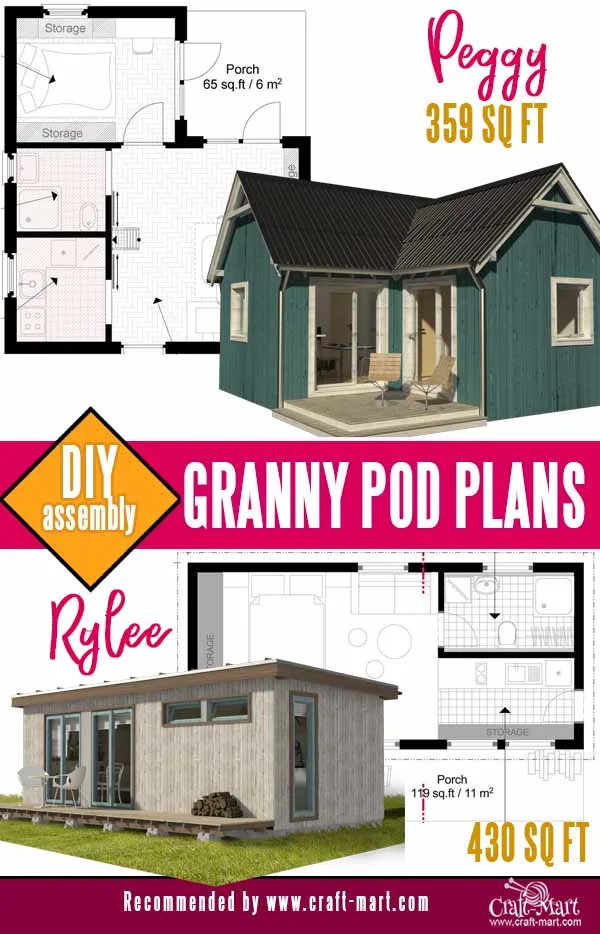Can You Deed a House With POD? Unveil the Secrets
Yes, you can deed a house with a POD (Payable on Death) designation. This allows the property to transfer directly to a named beneficiary.
A Payable on Death (POD) designation is a simple way to transfer property. It bypasses probate, providing a seamless transition of ownership upon the owner’s death. This process ensures that the named beneficiary receives the house without lengthy legal procedures.
Setting up a POD is straightforward, requiring minimal paperwork. It offers peace of mind and financial clarity for both the owner and the beneficiary. This method is especially beneficial for those seeking a quick and efficient transfer of assets. Consider consulting a legal expert to ensure all details are correctly handled.

Credit: www.walmart.com
Introduction To Property Deeds
Welcome to our blog post on property deeds. Understanding property deeds is crucial. They are legal documents. They show ownership of a property. Deeds are vital for real estate transactions.
Types Of Property Deeds
Different types of property deeds exist. Each type serves a unique purpose. Here are the main types:
- Warranty Deed: Offers the highest level of protection. The seller guarantees clear title.
- Quitclaim Deed: Transfers ownership without guarantees. Useful for transfers within family.
- Special Warranty Deed: Guarantees only the period the seller owned the property.
- Bargain and Sale Deed: Implies ownership but offers no warranty. Common in foreclosures.
Importance Of Deeding A House
Deeding a house is essential. It establishes legal ownership. It protects the buyer’s rights. Here are key reasons:
- Legal Protection: A deed provides legal proof of ownership.
- Transfer of Ownership: Deeds facilitate the transfer process.
- Clear Title: Ensures there are no hidden claims.
- Resale Value: A clear deed increases property value.
Understanding these aspects helps in safe property transactions. Always consult a professional for legal advice.
Basics Of Payable On Death (pod)
The Payable on Death (POD) designation is a simple way to transfer assets. It helps avoid probate and ensures your assets go directly to your chosen beneficiary. This method is often used for bank accounts but can also be applied to other assets.
What Is Pod?
A Payable on Death (POD) account is a bank account with a beneficiary. The beneficiary gets the money when the account holder dies. The process is straightforward and involves minimal paperwork.
This method allows the account holder to maintain control over their assets. Only after the account holder’s death does the beneficiary gain access. This ensures that the assets are secure until they are needed by the beneficiary.
Pod In Estate Planning
In estate planning, a POD designation is essential. It helps in bypassing the lengthy probate process. This ensures quick and direct transfer of assets to the beneficiary.
Using POD in estate planning has several benefits:
- Avoids probate: The assets go directly to the beneficiary without legal delays.
- Saves time and money: No need for court fees or lengthy legal processes.
- Provides flexibility: The account holder can change the beneficiary anytime.
Many people opt for POD to ensure their loved ones receive their assets quickly. This method is especially useful for liquid assets like bank accounts.
Deeding A House With Pod
Deeding a house with POD (Payable on Death) is a method to transfer property. This method ensures the house goes to a named beneficiary after death. It bypasses probate and simplifies the process.
Legal Viability
Using a POD deed is legally valid in many states. It’s essential to check local laws. Some states do not recognize POD for real estate. In such states, other methods are used. Always consult with a legal expert.
Steps To Deed A House With Pod
- Check State Laws: Verify if your state allows POD deeds.
- Choose a Beneficiary: Decide who will inherit the house.
- Complete the Deed Form: Obtain and fill out the correct form. Ensure all details are accurate.
- Sign the Deed: Both the owner and the beneficiary sign the deed. It may require notarization.
- File the Deed: Submit the deed to the local county recorder’s office. Pay any required fees.
Using a POD deed can make property transfer simple. It avoids lengthy probate processes. It is crucial to ensure all steps are followed correctly.
Pros And Cons Of Pod Deeds
POD (Payable on Death) deeds can simplify the transfer of property. They bypass probate and allow for direct transfer to beneficiaries. Understanding the pros and cons is crucial before deciding.
Benefits Of Using Pod Deeds
- Avoids Probate: POD deeds help avoid the lengthy probate process.
- Direct Transfer: Property transfers directly to the named beneficiary.
- Cost-Effective: Saves money on legal fees and court costs.
- Privacy: Keeps property transfer private and out of public records.
Potential Drawbacks
- Complexity in Changes: Changing a POD deed can be complex.
- No Asset Protection: Provides no protection from creditors for beneficiaries.
- Potential for Disputes: Can lead to family disputes if not clearly documented.
Comparison Table
| Aspect | Benefit | Drawback |
|---|---|---|
| Avoids Probate | Yes | No |
| Direct Transfer | Yes | No |
| Cost-Effective | Yes | No |
| Privacy | Yes | No |
| Complexity in Changes | No | Yes |
| No Asset Protection | No | Yes |
| Potential for Disputes | No | Yes |
Comparing Pod To Other Deed Types
People often ask about different ways to transfer property. Transfer on Death (TOD) deeds, also called Payable on Death (POD) deeds, stand out. But how do they compare to other deed types?
Pod Vs. Joint Tenancy
Joint tenancy involves two or more people owning a property. They have equal shares. When one owner dies, the property passes to the surviving owner. This happens automatically.
With a POD deed, the property owner names a beneficiary. The property transfers to this person after the owner’s death. It does not need probate.
| Aspect | Joint Tenancy | POD Deed |
|---|---|---|
| Ownership | Multiple owners | Single owner |
| Transfer | Automatic to surviving owner | To named beneficiary |
| Probate | Not required | Not required |
Pod Vs. Life Estate Deeds
Life estate deeds create a split ownership. The original owner keeps rights during their life. The remainderman gets ownership after the original owner’s death.
With a POD deed, the owner keeps full control while alive. The property only transfers after death. No split ownership exists during the owner’s life.
- Life estate deeds involve split ownership.
- POD deeds keep ownership with the original owner.
- Life estate deeds limit changes without remainderman’s consent.
- POD deeds allow changes anytime by the owner.
Both methods avoid probate. POD deeds offer more flexibility for the owner.

Credit: lmgfl.com
Impact On Beneficiaries
Using a Payable on Death (POD) designation can simplify property transfer. It can have a significant impact on beneficiaries. Knowing the rights and challenges is essential.
Rights Of Pod Beneficiaries
Beneficiaries with a POD designation have clear rights. They receive the property directly after the owner’s death. This process avoids probate court. Here are some key rights:
- Direct Transfer: Property transfers without probate.
- Immediate Access: Beneficiaries get immediate access to the property.
- Clear Ownership: They receive clear and full ownership.
Beneficiaries must provide a death certificate. This document activates the transfer. They should also ensure the POD designation is up-to-date.
Challenges For Beneficiaries
Despite its advantages, POD designations can present challenges. Beneficiaries might face the following issues:
| Challenge | Description |
|---|---|
| Unclear Titles | Title issues can delay the transfer. |
| Legal Disputes | Other heirs may contest the POD designation. |
| Taxes | Beneficiaries might owe taxes on the property. |
Legal disputes can arise if the POD designation is unclear. Beneficiaries should also be aware of potential tax implications.
Using a POD can benefit the transfer process. Beneficiaries should be aware of both rights and challenges.
Legal And Tax Implications
Deeding a house with a POD (Payable on Death) designation can ease estate planning. It bypasses probate, but there are legal and tax implications to consider.
Inheritance Tax Considerations
When you deed a house with a POD, the beneficiary may face inheritance tax. This tax varies by state. Check local laws to understand the tax burden.
- Some states impose high inheritance taxes.
- Other states may have exemptions or lower rates.
Consult a tax professional to navigate these complexities.
Legal Challenges And Solutions
Legal challenges can arise when deeding a house with a POD. Disputes among heirs are common. Clear documentation helps prevent these issues.
| Challenge | Solution |
|---|---|
| Heir Disputes | Clear beneficiary designation |
| Title Issues | Update property title |
Legal counsel can provide guidance. They ensure the POD designation is valid and enforceable.
Addressing these legal and tax implications ensures a smooth transition of property ownership.
Case Studies And Real-life Examples
Exploring the real-world application of the Payable on Death (POD) deed, we delve into various case studies and real-life examples. These insights shed light on the effectiveness and challenges of using POD deeds for property transfers.
Successful Pod Deed Transfers
Several homeowners have successfully used POD deeds to transfer property. Here are a few notable examples:
- Mary and John’s Story: Mary added her son John to her property deed using POD. This ensured that the house would automatically transfer to John upon her passing, without the need for probate.
- The Smith Family: Mr. and Mrs. Smith used a POD deed to leave their vacation home to their daughter. This move saved the family significant time and money in legal fees.
- David’s Experience: David, a single father, wanted to leave his home to his two children. He opted for a POD deed, ensuring a smooth transition of ownership.
Complicated Pod Deed Scenarios
Not all POD deed transfers are straightforward. Some scenarios present unique challenges:
- Multiple Beneficiaries: Jane listed her three children on the POD deed. After her passing, disputes arose over property division, highlighting the need for clear instructions.
- Disputed Ownership: In one case, a son claimed undue influence in the creation of a POD deed. Legal battles ensued, emphasizing the importance of transparency.
- Unclear Beneficiary: A homeowner named a distant relative as the POD beneficiary. After her passing, the relative’s location was unknown, complicating the transfer process.
| Case Study | Outcome |
|---|---|
| Mary and John | Smooth transfer, no probate |
| The Smith Family | Saved time and money |
| David’s Experience | Seamless ownership transfer |
| Jane’s Scenario | Disputes among beneficiaries |
| Disputed Ownership | Legal battles |
| Unclear Beneficiary | Complicated transfer |
These case studies highlight both the successes and complications of using POD deeds. They offer valuable lessons for anyone considering this method for property transfer.
Expert Advice On Pod Deeds
Deeding a house with a POD (Payable on Death) designation can simplify the transfer of property. It bypasses probate and allows for a smooth transition to beneficiaries. Expert advice is crucial in understanding the nuances of POD deeds.
When To Consult A Lawyer
Consult a lawyer when setting up a POD deed. Legal advice ensures all documents are accurate. A lawyer can explain state-specific laws. They help avoid potential legal issues. Not all states allow POD deeds for real estate. A lawyer clarifies what is legal in your state.
| Reason | Benefit |
|---|---|
| State-specific laws | Ensures compliance |
| Document accuracy | Prevents future disputes |
| Legal clarity | Avoids potential issues |
Choosing The Right Estate Plan
Choosing the right estate plan is crucial. A POD deed may not suit everyone. Consider other estate planning tools. These include wills and trusts.
- Wills: Define how assets are distributed.
- Trusts: Provide more control over assets.
- Joint Tenancy: Simplifies property transfer to co-owners.
Evaluate your specific needs with a financial advisor. They help choose the best option for your situation. Estate planning should align with your overall financial goals.

Credit: legaltemplates.net
Frequently Asked Questions
Is Transfer On Death A Good Idea?
Transfer on death can be a good idea. It simplifies asset transfer, avoids probate, and ensures beneficiaries receive assets quickly. Evaluate your specific situation and consult a financial advisor.
What Are The Disadvantages Of A Transfer On Death Deed?
Transfer on death deeds can cause legal disputes. They may not cover all estate planning needs. Beneficiaries might face delays. They can complicate Medicaid eligibility. Some states don’t recognize them.
What States Have Beneficiary Deeds?
States with beneficiary deeds include Arizona, Arkansas, Colorado, Kansas, Missouri, Montana, Nevada, New Mexico, Ohio, Oklahoma, and Oregon. These deeds allow property transfer upon death without probate.
What Is The Best Way To Leave Property Upon Death In Texas?
The best way to leave property upon death in Texas is through a legally binding will. Consider consulting an attorney.
Conclusion
Deeding a house with a POD can simplify estate planning. It ensures a smooth transfer without probate. Always consult a legal expert for personalized advice. This method offers peace of mind and clarity. Consider all options to make the best decision for your situation.





